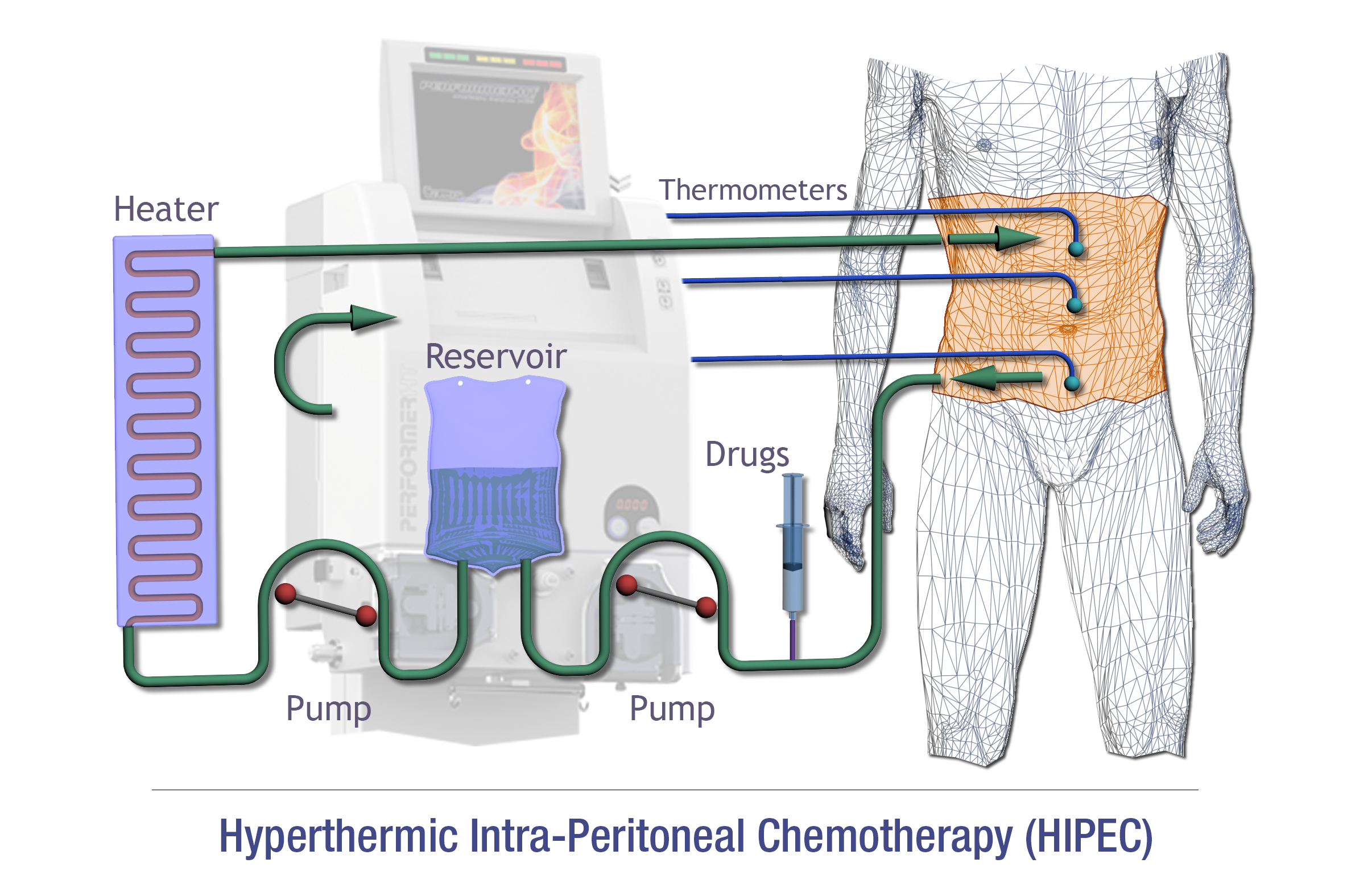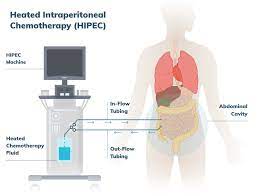Hyperthermic Intraperitoneal Chemotherapy (HIPEC) offers several potential benefits, particularly in the treatment of advanced abdominal cancers. Here are some of the potential advantages of HIPEC:
- Localized Treatment: HIPEC delivers chemotherapy directly to the abdominal cavity, allowing for a highly concentrated and localized treatment. This is especially beneficial for cancers that have spread within the peritoneal cavity.
- Enhanced Chemotherapy Effectiveness: Heating the chemotherapy solution during HIPEC can enhance the effectiveness of the drugs. Elevated temperatures may improve drug penetration into cancer cells, making the treatment more potent.
- Targeting Residual Cancer Cells: After the surgical removal of visible tumors, HIPEC targets any remaining microscopic cancer cells that may be present in the abdominal cavity. This can help reduce the risk of cancer recurrence.
- Minimization of Systemic Side Effects: Because HIPEC delivers chemotherapy directly to the abdominal area, it may potentially minimize the systemic side effects that can occur with traditional intravenous chemotherapy. This targeted approach may spare healthy tissues from exposure to high doses of chemotherapy.
- Treatment of Peritoneal Metastases: HIPEC is particularly effective in treating peritoneal metastases, which are cancerous deposits that have spread within the peritoneal cavity. It can be used in various cancers, such as advanced ovarian cancer, colorectal cancer, and peritoneal mesothelioma.
- Increased Chemotherapy Dose: The localized delivery of heated chemotherapy allows for the administration of higher doses than would typically be tolerated with systemic chemotherapy. This higher dose may improve the killing of cancer cells.
- Improved Survival Rates: In selected cases, HIPEC has been associated with improved survival rates for patients with certain advanced abdominal cancers. However, outcomes can vary based on factors such as the type of cancer and the overall health of the patient.
- Potential for Complete Cytoreduction: HIPEC is often part of a treatment strategy that includes cytoreductive surgery, aiming to remove visible tumors. The combination of surgery and HIPEC may increase the likelihood of achieving complete cytoreduction.
It’s important to note that the benefits of HIPEC can vary depending on the individual patient, the specific type of cancer being treated, and the overall treatment plan. HIPEC is generally considered for selected cases and is often performed by multidisciplinary teams with expertise in treating advanced abdominal cancers. Patients should discuss the potential benefits and risks of HIPEC with their healthcare team to make informed decisions about their treatment.
Ready to prioritize your gut health? Dr. Chintamani Godbole is your dedicated Gastrointestinal Doctor in Mumbai. Take the first step – schedule your consultation today!


